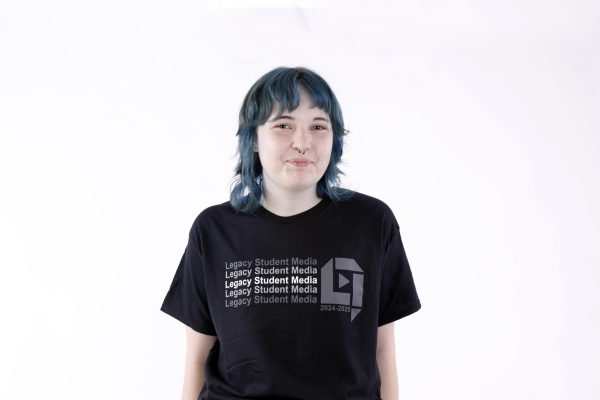With the appeal of Amazon, what’s the point of venturing to bookstores these days? Lower prices, efficiency, and you don’t even have to take one step outside of your house. According to WordsRated, in 1995, when Amazon first opened, only 10% of book sales came from channels such as Amazon. Now, in 2023, Amazon accounts for at least 50% of all book sales in the US. Amazon sells more than 300 million print-copied books per year, compared to Barnes and Noble which sells over 190 million physical books per year–not even accounting for eBooks.
Sophomore Addison Biondi prefers to shop at bookstores. She believes the higher prices at bookstores are worth it for the tangible experience and the satisfaction of supporting local businesses. She also enjoys scanning the shelves and coming across unexpected finds.
“There’s something special about obtaining a physical book, and the experience of finding it in a store adds to the overall joy of reading,” Biondi said. “When I go to a bookstore, I usually have a couple of titles in mind, but I also enjoy serendipitous discoveries while browsing books.”
Physical bookstores offer upcoming authors visibility and recognition. Although Amazon is accessible and allows authors to self-publish their novels, the market is highly competitive. Authors with best-selling titles often place smaller authors into the shadows, leaving them unable to obtain sales without paying a fortune for advertisements and book promotions.
With a vast genre preference, ranging from classics to literary realism, Biondi looks to bookstore staff for their personal recommendations– advice you can’t receive from a source like Amazon.
However, the appeal of Amazon’s prices and reputability turns more people to shop for books there, rather than at bookstores. The book prices are often majorly discounted– with deals buyers can’t find anywhere else– The way Amazon manages this all has to do with royalties. All that matters is if the publisher makes a certain percentage of the sum. For example, the novel, “The Outsiders” is sold online at B&N for $15 while on Amazon it’s priced at $5.98 and Prime consumers are allotted free delivery. Amazon would make less from this single sale than B&N, but with everything built up, Amazon can afford these losses and still make an adequate profit. Kelly Fernandez Guada, 10, prefers shopping for books using Amazon, mainly due to the convenience and the vast selection of novels.
“I think one of the most amazing benefits of buying books from Amazon is the convenience. I don’t have to leave my house to get books, but rather, I can just order them online and have them delivered to my doorstep,” Fernandez Guada said. “Another great benefit is Amazon’s vast selection of books, they pretty much have anything you can think of.”
Fernandez Guada believes Amazon has alternated the book industry–but for the better.
“I think it’s changed it. But in a way where it’s also made it easier for people to find and buy books, especially for people who don’t have access to bookstores or libraries,” Fernandez Guada said.
Despite its convenience, Amazon takes customers away from local bookstores that actually value books.
Morgan Moore is the owner of Pantego Books, a small book business, who believes competing with bigger companies prompts difficulties. Being a smaller business, she can’t afford to drop book prices like Amazon.
“When people complain about our prices, it’s hard for them to understand we didn’t have anything to do with them. Sure, I could mark them all down like other big box stores, but the margins of books for an indie bookseller are not great,” Moore said. “I’ve heard on more than one occasion people whispering to their shopping buddy that they can get it cheaper elsewhere before leaving empty-handed.”
Moore believes the book industry has provided many positive changes–offering a platform to minorities and marginalized voices, however, she faces hardships and would want to change the pricing advantages circulating in this industry.
“The biggest struggle is the low-profit margin on new books, which coincides with competing with the big box stores and online giants. I would change the unfair pricing structure in America where big box stores can sell books at a loss,” Moore said. “In various countries in Europe, book prices are standardized and all retailers in those countries must adhere to them, basically they can’t go below the marked price. It just evens the playing field between the big businesses and the small businesses.”
However, despite these challenges, Pantego Books built a very loyal customer base that supports them.
“I have noticed people are willing to regularly shop at our store and support us. I think people have begun recognizing (or continue recognizing) that the small businesses around them are what make up their communities,” Moore said. “Reading opens our world to so many new and exciting things. It’s one of the best ways to put ourselves in someone else’s shoes and live an experience through their eyes. In doing so, I believe someone can become more empathetic and sympathetic towards a person they might not have anything in common with otherwise, which builds a more cohesive community,” Moore said. “Reading is also a wonderful way to escape real life, laugh, cry, and even fly on the backs of dragons without ever leaving your seat.”
With the looming question of “Is Amazon putting bookstores at risk?” We could agree that although bookstores may be less prominent than they used to be, both online and real-life booksellers are influencing people to buy books, which is an all-around positive outcome.
“Bookstores provide a more immersive and personal experience!” Biondi said.











